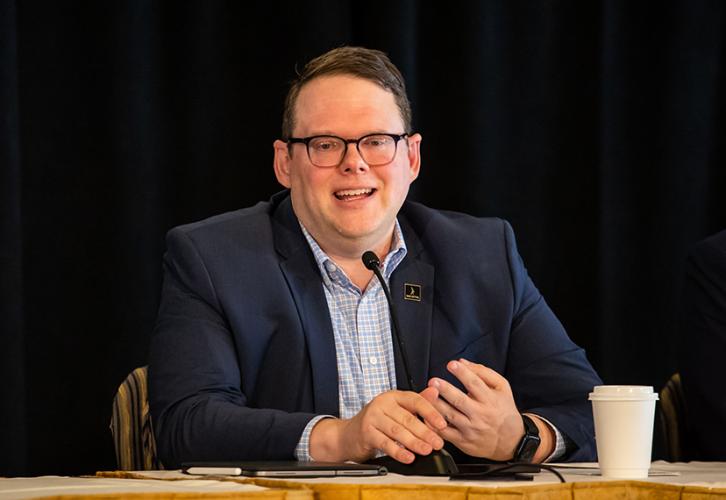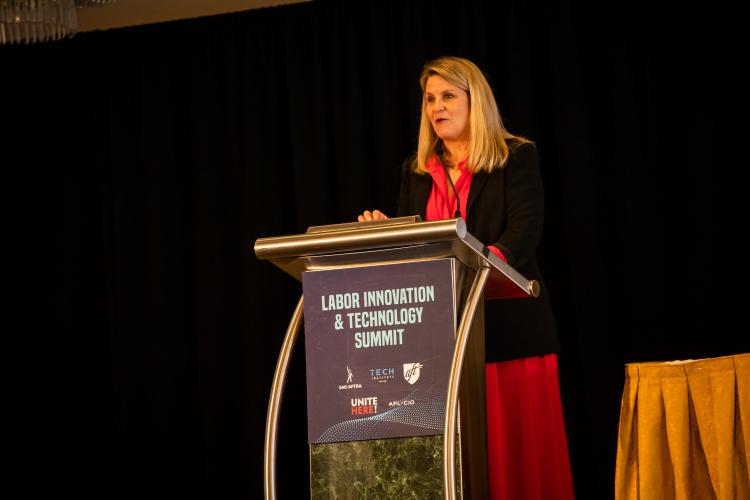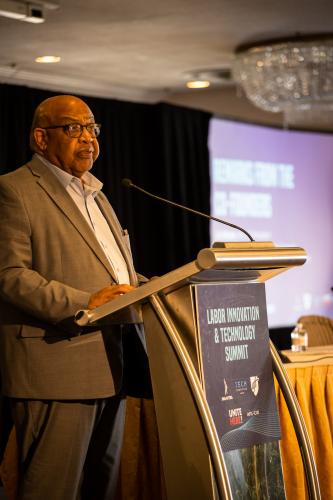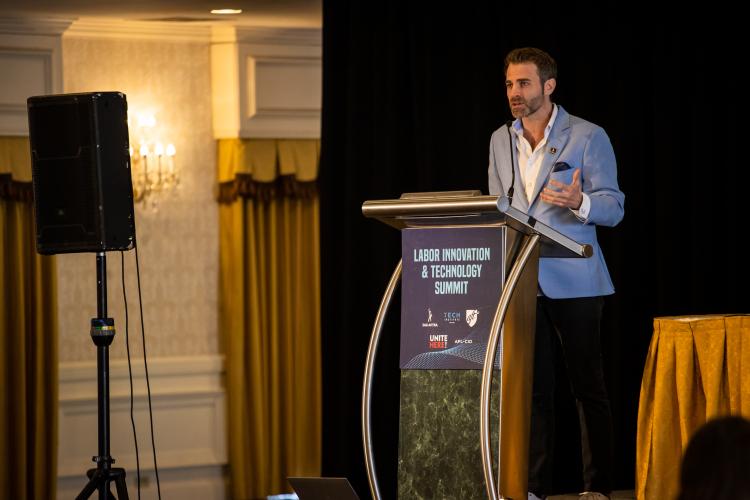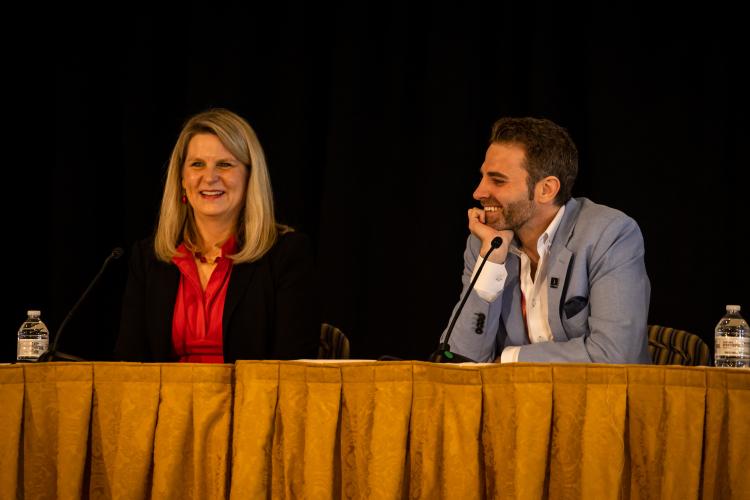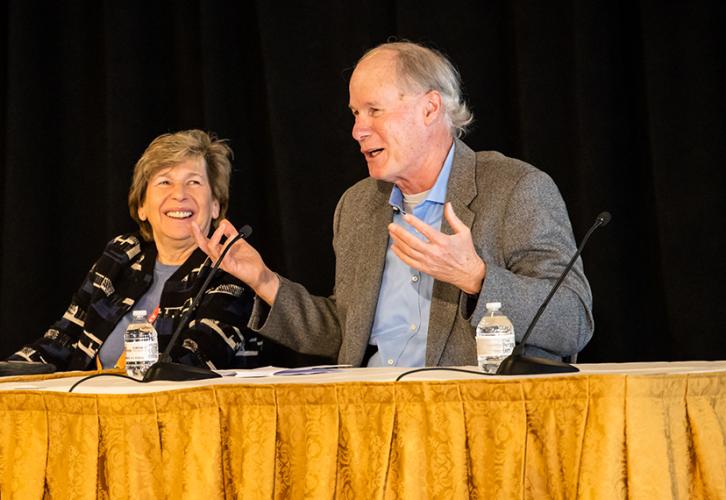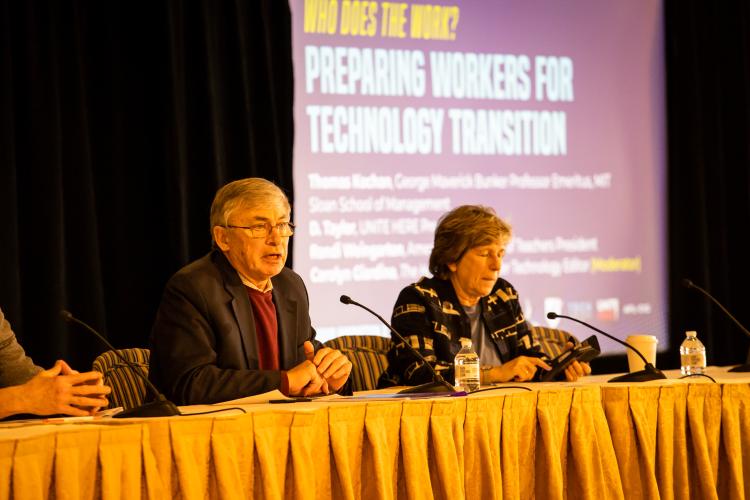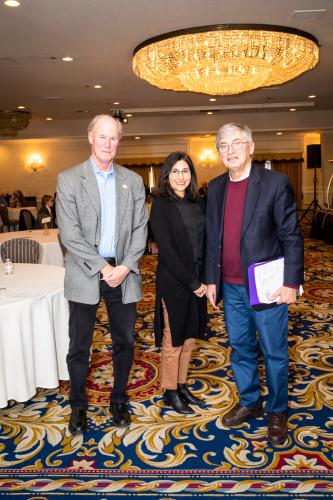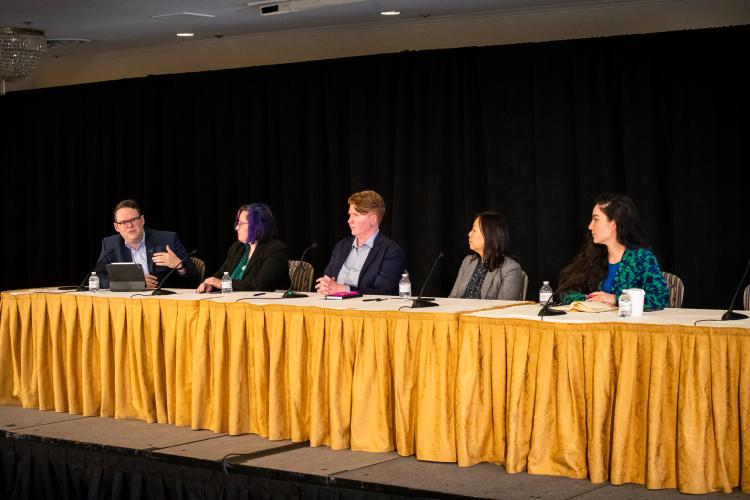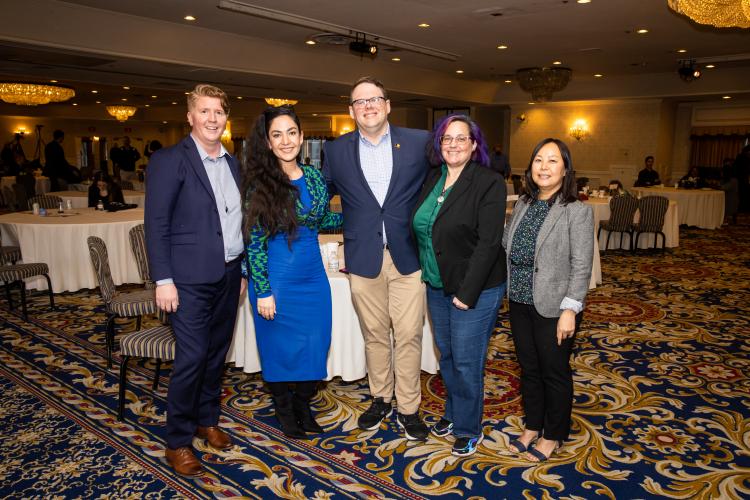
As technology continues to rapidly reshape industries, labor leaders share their thoughts on how to ensure workers have input in shaping the future of work at Labor Innovation & Technology Summit.
The fourth Labor Innovation & Technology Summit returned to Las Vegas on Jan. 6. Hosted by SAG-AFTRA in partnership with the AFL-CIO, UNITE HERE and the American Federation of Teachers, the summit brings together leaders from across the labor movement to discuss what innovation means for the future of workers.
“This summit highlights the fundamental truth that technology impacts every industry, and to ensure a better future for all workers we must stand in solidarity with our siblings in the broader labor movement,” said SAG-AFTRA Executive Vice President Ben Whitehair.
“The juxtaposition between increased efficiency and labor rights isn’t a new one; workers have long had to advocate for themselves in the face of cost-cutting measures associated with advances in technology. Today’s discussions [serve as] a showcase of the power and inherent downfalls of artificial intelligence, automation and other emerging technologies,” said SAG-AFTRA National Executive Director & Chief Negotiator Duncan Crabtree-Ireland.
The summit opened with invitation-only panels, Our Response to Technology Requires Our Unity, Emergent Technologies and Collective Bargaining as New Technologies Upend and Change Work, and also included the keynote address, Our Bargaining Power Is Critical in this Era of New Technology. The afternoon itinerary opened to the public with keynotes from Whitehair and AFL-CIO President Liz Shuler and Secretary-Treasurer Fred Redmond. Its program consisted of a fireside chat, Technology Transformation & the Future of Workers, and two panels, Who Does the Work? Preparing Workers for Technology Transition and Ethical Adaptation. Whitehair, Shuler and Crabtree-Ireland participated in the afternoon panels alongside UNITE HERE President D. Taylor, American Federation of Teachers President Randi Weingarten and other subject-matter experts.
As technological advances continue to transform labor across multiple industries, the summit served as a needed venue to examine and understand how best to meet those new challenges. Many of the panelists called for creating policies that center workers as key stakeholders.
“Too often, the discussions about the future of work have focused on automation, robots and new technologies. But what gets left out of the story is the impact of those new technologies on workers’ wages, benefits and working conditions,” said Labor Futures Initiative Program Director, Data & Society Aiha Nguyen. “Those conversations presume that technology is good for all and, therefore, working people should just adapt to new technological futures, but … [technological] design is based on human design. For that reason, working people can and must help to shape and govern technology.”
Other conversations focused on the renewed interest in the labor movement. According to a 2022 Gallup poll, unions were seen favorably by nearly 71% of Americans, a number not seen since 1965. With this noticeable shift, as well as organizing efforts being conducted across the country, union leaders expressed interest in determining how best to support those new grassroots efforts.
“Increasingly, younger generations are expecting to be included in the conversation, and I think that’s why we’re seeing both them and society at large embracing the labor movement in a different way,” said Whitehair during Technology Transformation and the Future of Workers. “People are seeing the negative impact that comes from decades without appropriate protections and workers not having a voice. It’s something that resonates with people; they want to be treated with respect and able to support [themselves].”
Added Shuler, “It is a priority to engage and mobilize our young union members and connect them with community activists on the ground. In the next year, [the AFL-CIO] will be recruiting and engaging our young activists who are seeing the labor movement as a place to bring their innovative ideas and shake up the approaches we take.”
Experts estimate that technological advancements currently being made will radically change the workplace for both blue- and white-collar workers in the coming years. As conglomerates continue to implement tech to manage their workers, including surveillance and AI technology, labor leaders point to policy implementation as a means of meeting those changes and empowering workers.
“We don’t yet happen to live in a country that [creates] strategies around transitions in the workplace … but we cannot overlook the catastrophic impact on people’s lives for not doing so. It’s something that we, as a labor movement, have to continue to take on and demand so what’s created is ‘good technology’ — technology that makes work faster, safer and equitable,” said AFL-CIO Technology Institute Executive Director Amanda Ballantyne. “If we really focus our efforts, there’s room to shape and regulate these technologies, and I think that’s going to be really critical in the next two decades.”
A dinner also took place during the summit with special guests including United States Deputy Secretary of Labor Julie Su and Senator Jacky Rosen (D, Nev.).
The Labor Innovation & Technology Summit will reconvene in 2024.
Union leaders and industry experts were also in attendance at CES 2023, considered to be the world’s largest tech conference and showcase. As part of CES’ C Space Studio programming on Jan. 5, SAG-AFTRA hosted Future Shock: The Tech & Trends Changing Entertainment event. Future Shock provides a behind-the-scenes look at the emerging technologies shaping the work of entertainers and content creators, and their impact on consumers, brands and fans.
All photos by Shane O’Neal.
News
- Tags:
- News Updates

